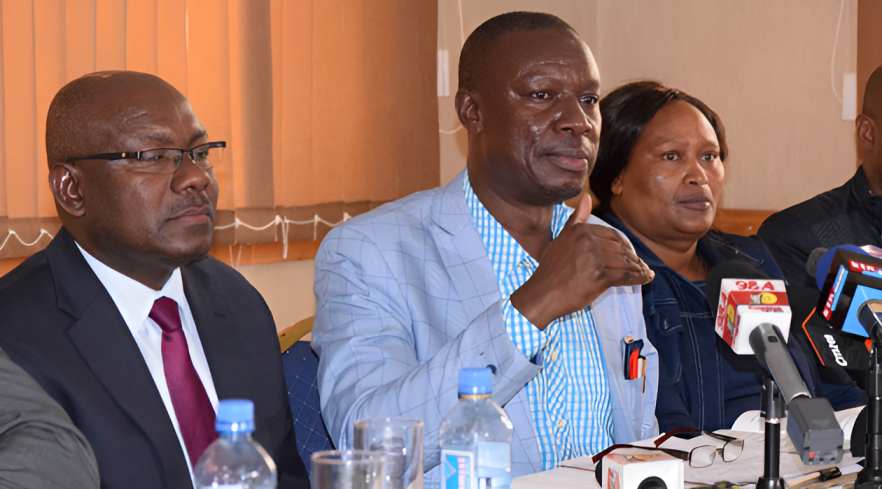KNUT pushes for 60% pay rise for teachers

KNUT urged the Teachers Service Commission (TSC) to expedite the salary negotiations before the June 30 deadline.
The Kenya National Union of Teachers (KNUT) is calling for a 60% raise in salaries along with a 30% boost in allowances.
Hesbon Otieno, KNUT’s Deputy Secretary General, stated that the Teachers Service Commission (TSC) has already forwarded the Collective Bargaining Agreement (CBA), which is due to expire on June 30, to the Salaries and Remuneration Commission (SRC) for review.
Speaking at the funeral of the late retired teacher Harrison Muriithi Gicira at Kiandangae ACK Church in Ndia Constituency on Wednesday, June 4, 2025, Otieno urged the Teachers Service Commission (TSC) to expedite the salary negotiations before the June 30 deadline.
"With the state of the Kenyan economy, teachers deserve a 60% salary increase and a 30% boost in all allowances. We have already communicated our proposal to the TSC, which is now with the Salaries and Remuneration Commission (SRC). We call on them to fast-track the process and finalize the Collective Bargaining Agreement by the end of June," Otieno said.
He also condemned the government’s decision to remove hardship allowances in some areas, a move that has negatively impacted many teachers.
Otieno warned that if the hardship allowance is not reinstated, teachers across the country will launch a nationwide strike to defend their colleagues who currently receive it.
"If the government interferes with the hardship allowance, all teachers will stand united to protect those affected," he added.
This announcement comes after the Teachers Service Commission (TSC) conducted a thorough review of hardship allowances and reclassified hardship areas across the country on May 7, 2025.
Led by the Salaries and Remuneration Commission (SRC), the initiative seeks to ease pressure on the national budget by removing hardship allowances in some regions while modifying them in others.
The new framework introduces a two-tier classification for hardship areas: Extreme Hardship Areas and Moderate Hardship Areas.
This shift moves away from the previous blanket approach, offering a more detailed assessment based on updated evaluations of infrastructure, accessibility, security, and availability of social services.
Set to take effect on July 1, 2025, these changes will significantly impact teachers and other public servants who have depended on hardship allowances as compensation for working in remote, insecure, or underdeveloped regions.
According to the Salaries and Remuneration Commission (SRC), the review was guided by substantial improvements in infrastructure, service accessibility, and overall living conditions in many areas that were previously labeled hardship zones.
Teachers in regions removed entirely from the hardship classification, such as Tinderet, Soin, Bunyala, Elgeyo Marakwet, and Tharaka Nithi, are among those most affected by the policy change, as the government has concluded that conditions in these areas have improved enough to justify ending the hardship allowance.
